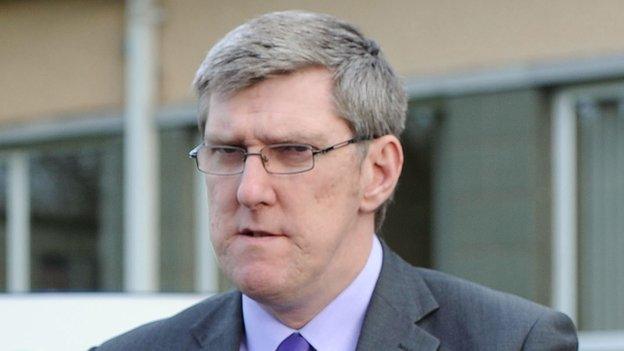NI school governor system reinforces division, says report
- Published
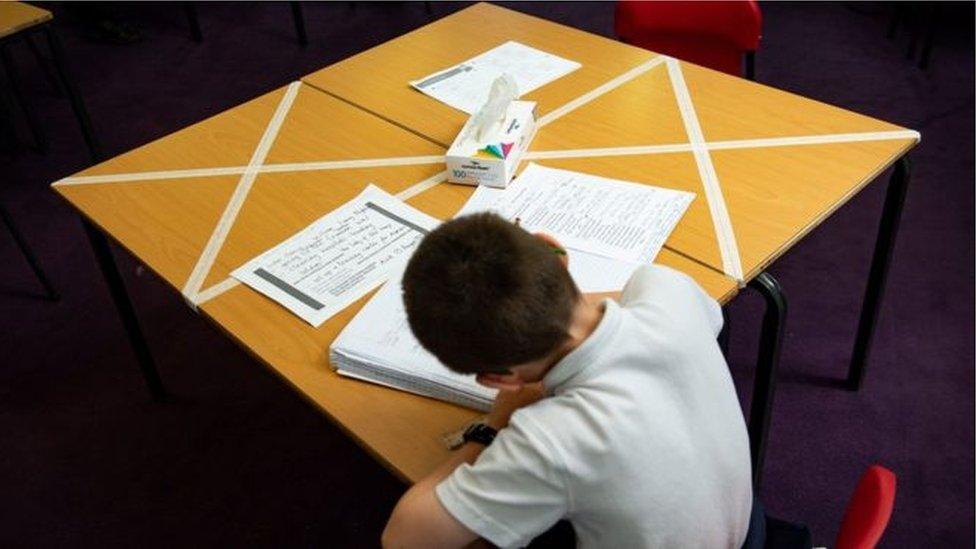
The report says alternative ways of governing schools should be considered
The way schools in Northern Ireland are governed reinforces community division, a new report suggests.
That is one of the conclusions of newly published research from Ulster University's Unesco centre of education.
Every school has a board of governors to oversee management and finance and maintain the school's "ethos".
The make-up of each board of governors depends in part on each school's religious background and origins.
The Ulster University (UU) report on the governance of schools said that being a governor could be a difficult and complex job. It is also voluntary and unpaid.
While some governors are appointed by parents, staff or the Department of Education (DE), some are appointed by churches.
The board of a state-controlled school is legally required to include a number of representatives from the Protestant churches. These are known as "transferors".
Controlled integrated schools also have places reserved for governors delegated by the Catholic Church.
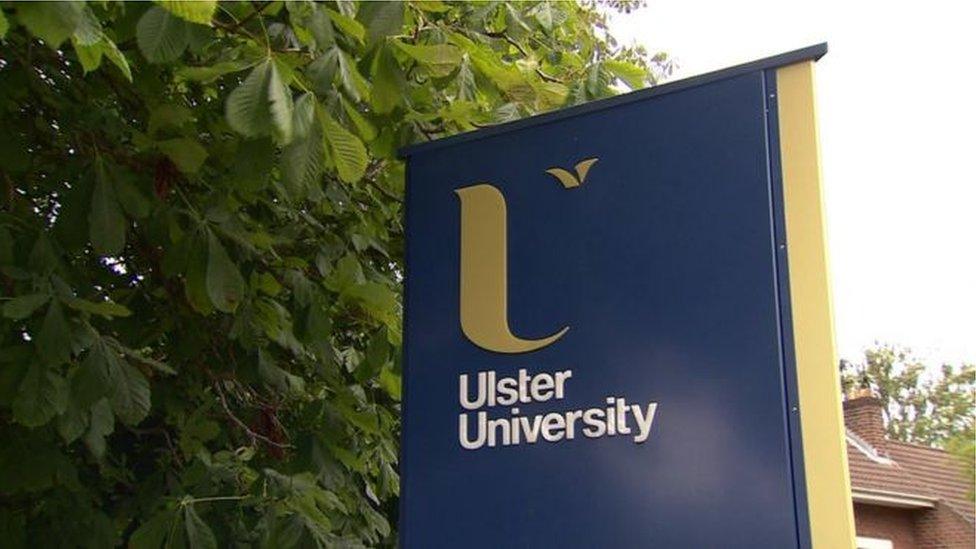
A UU report suggests community separation is embedded in how our schools are governed
Similarly, whilst Catholic trustees have guaranteed seats on the boards of Catholic maintained schools, there are no places for representatives from the Protestant churches.
"Governing bodies are tasked with maintaining school ethos and will consequently reflect the identity and community composition of the institution's founders," the UU research said.
"This system serves to enshrine self-replication and solidify the separation of schools."
Lead researcher Dr Matt Milliken told BBC NI's Good Morning Ulster the current system is "overwhelmingly complex".
He said "schools need to adapt to changing times".
"In an ideal world we would select boards of governors on the basis of the skill sets that they have, but governing a school, managing a school is a phenomenally complex task.
"And yet we select governors on the basis of their affiliation with a church rather than their capacity to deliver an effective system of management."
Appointment panels
Members of boards of governors also sit on interview panels to appoint new teachers and other school staff.
The UU report said this could lead to a potential conflict of interest.
"Consciously or unconsciously, candidates sympathetic to one particular denomination could be favoured ahead of candidates of another faith, or, that those who practise faith are preferred to those who do not," the report said.
"Having a 'single identity' appointment panel would be unconscionable in almost any other workplace, but in schools the potential for such discrimination is made permissible by the exception of teachers from protection under fair employment laws."
The report said the growth of shared education had led to greater co-operation between boards of governors of some schools from different backgrounds.
But while about 7% of pupils are taught in formally integrated schools, attempts by the four main churches to run a "joint-faith" school have so far failed.
The UU report said that evidence suggested that there had been an increase in the proportion of the population who did not identify as Catholic or Protestant.
'Community separation'
"The overtly Christian denominational influences embedded in the composition of boards of governors may impact upon the ability of schools to adapt to meet the changing profile of their pupils and to accommodate those with non-Christian beliefs or those of no faith," it said.
"Community separation is embedded in the system of school governance by the presence of clerics and representatives of the Catholic Church (trustees) on the governors of maintained schools and Protestant denominations (transferors) on the boards of their controlled counterparts.
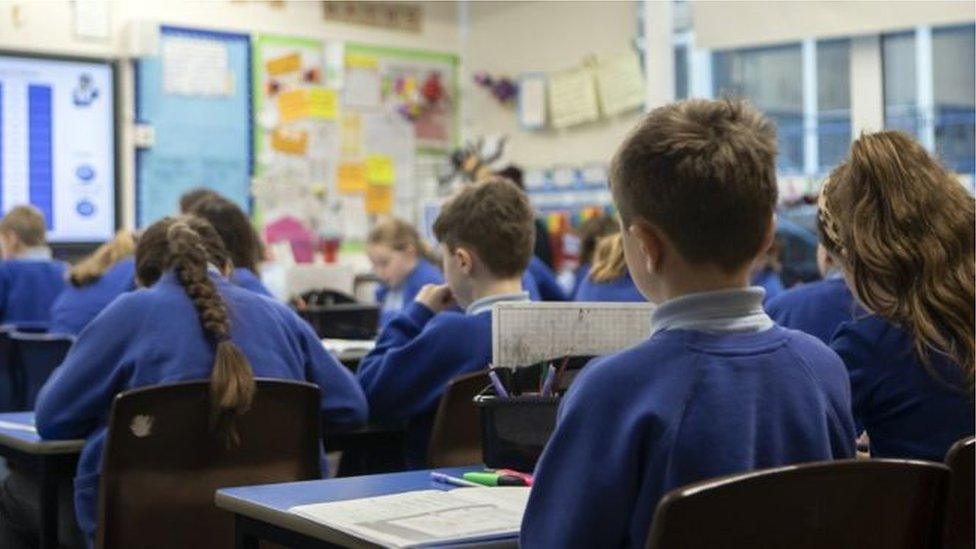
"Historically, vested denominational interests have prevented the development of a common system of schooling.
"Denominational representation is enshrined in legislation."
The report said alternative methods of governing schools in Northern Ireland should be considered.
Scotland, for instance does not have a formal system of school governance and instead schools have parent councils.
Meanwhile, in the Republic of Ireland, more than 100 schools run by the Educate Together organisation have no governor places reserved for church representatives.
The UU report said a review of education promised in the New Decade, New Approach agreement should consider whether the way schools are governed in Northern Ireland should change.
- Published19 June 2020

- Published11 February 2020
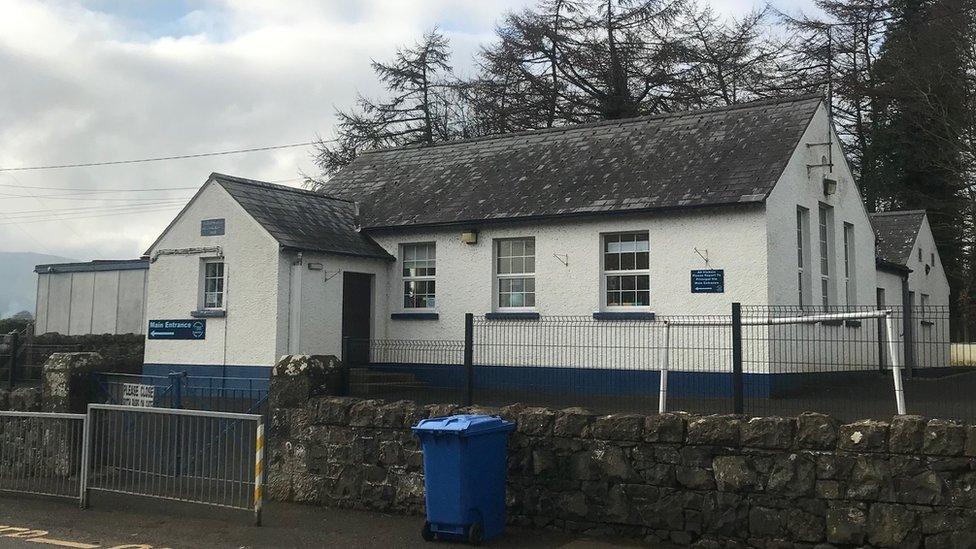
- Published12 October 2018
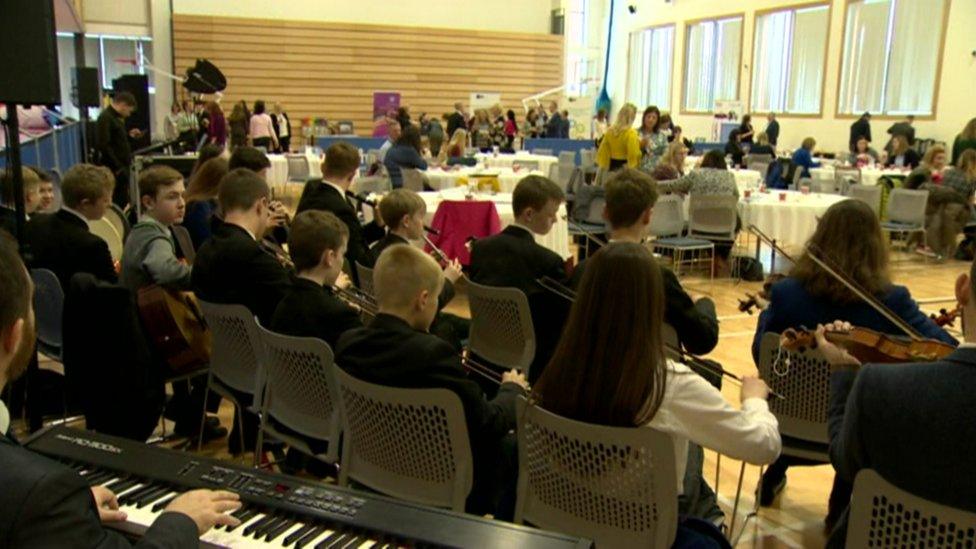
- Published4 March 2020

- Published13 May 2019
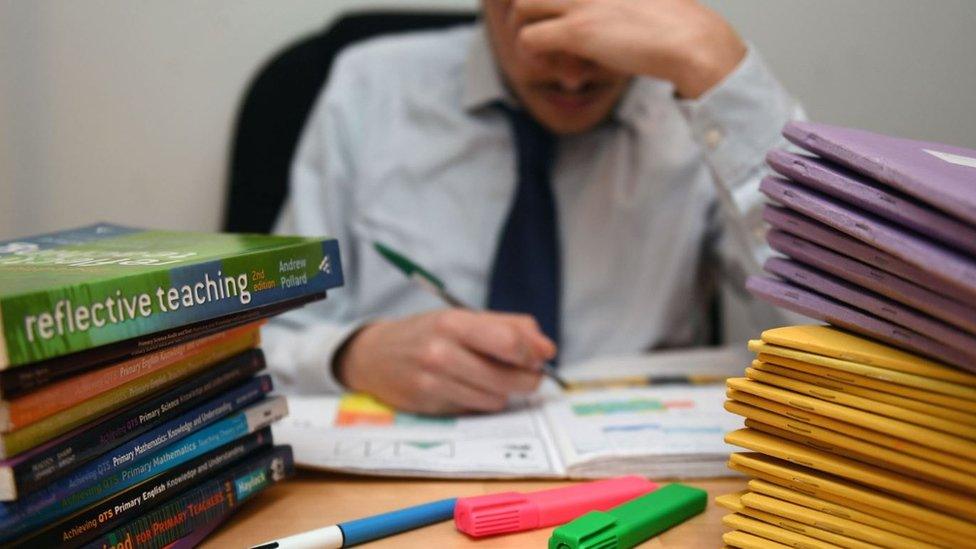
- Published7 June 2019
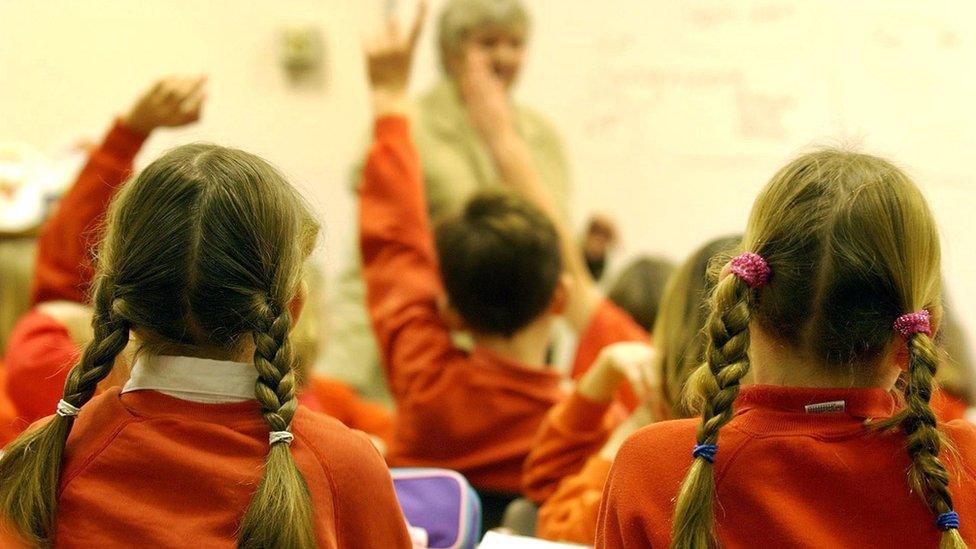
- Published9 February 2015
